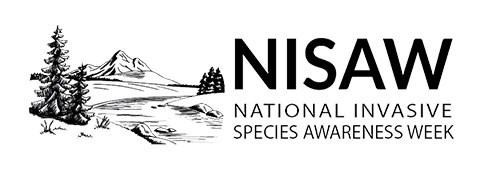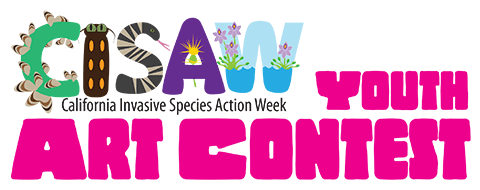|
Non-native, invasive species threaten endangered animals and plants at Point Reyes National Seashore and are costly to control. Learn how you can help prevent the introduction and spread of non-native species before they become a problem. The Threat of Non-Native Plants and AnimalsNative plants and animals living near urban areas are especially vulnerable to extinction due to habitat loss and the introduction of non-native, invasive species. "Non-native" species are also called "introduced" or "exotic" species; this term refers to plants that originate elsewhere and are brought into a new area. Not all introduced species are invasive, but those which are may dominate the local species or in some way negatively impact the environment for native species. For example, many non-native, invasive weed species are plants that grow or spread aggressively, taking over important wildlife habitat, devastating shelter and forage, and reducing the diversity and quality of native habitat. These weeds often do not hold and protect the soil the way native plants do, so erosion increases and causes sedimentation of streams, harming fish populations and water quality. Roads, trails, and parking lots are often where we first find non-native, invasive species. Nearly half of the endangered plants and animals in the United States have been negatively affected by non-native, invasive species. In addition, these species cause an estimated $138 billion in economic damage each year in the United States. How You Can HelpIf you plan to visit Point Reyes National Seashore, you probably care a great deal about protecting park resources from harm. Ironically, those who enjoy visiting Point Reyes can also be responsible for spreading non-native, invasive species. You can help prevent the introduction and spread of non-native plants and animals, which is far more effective than costly eradication programs. Clean and Inspect Clothing, Gear, and Containers for Weeds and Other "Hitchhikers"Many weed seeds readily stick to clothing and camping gear. These seeds can later fall off and germinate, establishing new weed colonies. Weeds and other non-native organisms can hitch a ride in camping equipment, food containers, and baggage. Visitors should clean and inspect their footwear, clothing, and gear (especially shoe treads and Velcro) for seeds and soil before traveling to Point Reyes and before departing the park. Socks and cuffs of pants should be given particular attention. Sleeping bags, sleeping pads, and tents should be cleaned and inspected for soil, invertebrates, and seeds before leaving home. While HikingTrails can be pathways for a lot more than just people. Weeds often spread along trails and then to adjacent un-infested areas. You can help prevent this from happening by always staying on designated trails, avoiding weed-infested areas, and by not picking or transporting plants when hiking in the Seashore. Pack out all trash. Just because some trash—apple cores, orange seeds, etc.—is “natural” or organic, doesn’t mean it can be left behind. Please be sure to pack out all trash. While most domestic fruit and vegetable species are not invasive, some can germinate and become pests. Food sources associated with people can turn wild animals into habituated, problem animals. CampfiresCampfires are prohibited throughout most of the Seashore and are only allowed on beaches, if you have obtained a Beach Fire Permit from a park Visitor Center or ranger. Common sense will tell you that campfires can be dangerous and potentially harmful in more ways than one. In addition to the threat of wildfire, firewood brought from elsewhere can harbor organisms that can be very destructive. This includes the fungal-like disease Sudden Oak Death that kills several species of native trees. You can help prevent the spread of this disease and other harmful organisms by not transporting wood from outside of West Marin—wait until you are in West Marin before purchasing firewood. Domestic AnimalsAlthough many people know that pets are prohibited throughout much of the National Seashore, they probably never imagine the danger domestic animals can pose to wildlife. Diseases carried by domestic animals can spread to wild animals, or vice versa. A variety of wild animals are sensitive to disease, and pets and their droppings can spread pathogens and cause other problems for wildlife. Even vaccinated and apparently healthy animals can be carriers of diseases that are potentially lethal to wildlife. Although few pet owners like to leave their pets at home, this is probably the best way of avoiding the temptation to take your pet to locations at Point Reyes where they are not permitted. Boaters and Invasive SpeciesPrivate boaters should be particularly diligent to ensure that no unwelcome plants, animals, and other organisms are living on their boats that could be accidentally transferred to the waters surrounding Point Reyes. A variety of aquatic invasive species can hitch a ride on our clothing, boats, and items used in the water. When boaters go to other bodies of water, the invasive species can be released. And, if the conditions are right, these introduced species can become established and create drastic results. By following the following guidelines each time you leave the water, you can help stop aquatic hitchhikers.
Go to the Protect Your Waters and Stop Aquatic Hitchhikers! website for more information.

National Invasive Species Awareness WeekNational Invasive Species Awareness Week (NISAW) is a nationwide event occurring in the spring to raise awareness of the threat of invasive species of plants and animals and what people can do to prevent their spread. Representatives from local, state, and regional organizations gather in Washington, D.C. in late February to discuss policies and changes that can be made to prevent and manage invasive species. A series of educational and advocacy events are planned online and in local communities. In the late spring, local partners hold public events to remove invasive species and educate the public. For 2025, NISAW will occur from Monday, February 24 through Friday, February 28. Visit NISAW's website to learn about local invasive species prevention, removal, and educational events. California Invasive Species Action WeekThe 2024 California Invasive Species Action Week will be observed from Saturday, June 1, through Sunday, June 9, 2024. Check back in the spring of 2024 for information about the 2024 California Invasive Species Action Week. The goal of the Action Week is to increase public awareness and promote public participation in California's fight against invasive species. There are numerous ways for people to participate, either independently, or as part of an organized effort. For example, you can learn which invasive species are issues in your area, remove invasives from your property, select native plants for your garden, harvest them for food, or volunteer to remove invasives from a participating park. 
California Invasive Species Action Week Youth Art ContestTheme: "Species Reporters Wanted- What's the Scoop on Invasives" Invasive species are plants, animals, and microorganisms that are not native to an environment, and that once introduced, establish, quickly reproduce and spread, and harm the environment, economy, or human health. Dig into the facts and then share what you have discovered about invasive species. Pick an invasive species and show it/them and at least one of the following in your art piece: where they live, what impact they have on the environment, who is affected by their presence, why we don't want them, how can we stop their spread. All types of media are welcome and encouraged: drawings, paintings, mixed media, sculpture, animations, comic strips, videos, audio. Enter your artwork in the Department of Fish and Wildlife's "Species Reporters Wanted- What's the Scoop on Invasives" youth art contest. The deadline for entries is Friday, May 3, 2024, and winners will be announced during the Action Week! Check out the CISAW web page for poster contest details and to find out how you can take action: www.wildlife.ca.gov/Conservation/Invasives/Action-Week. |
Last updated: April 6, 2024
